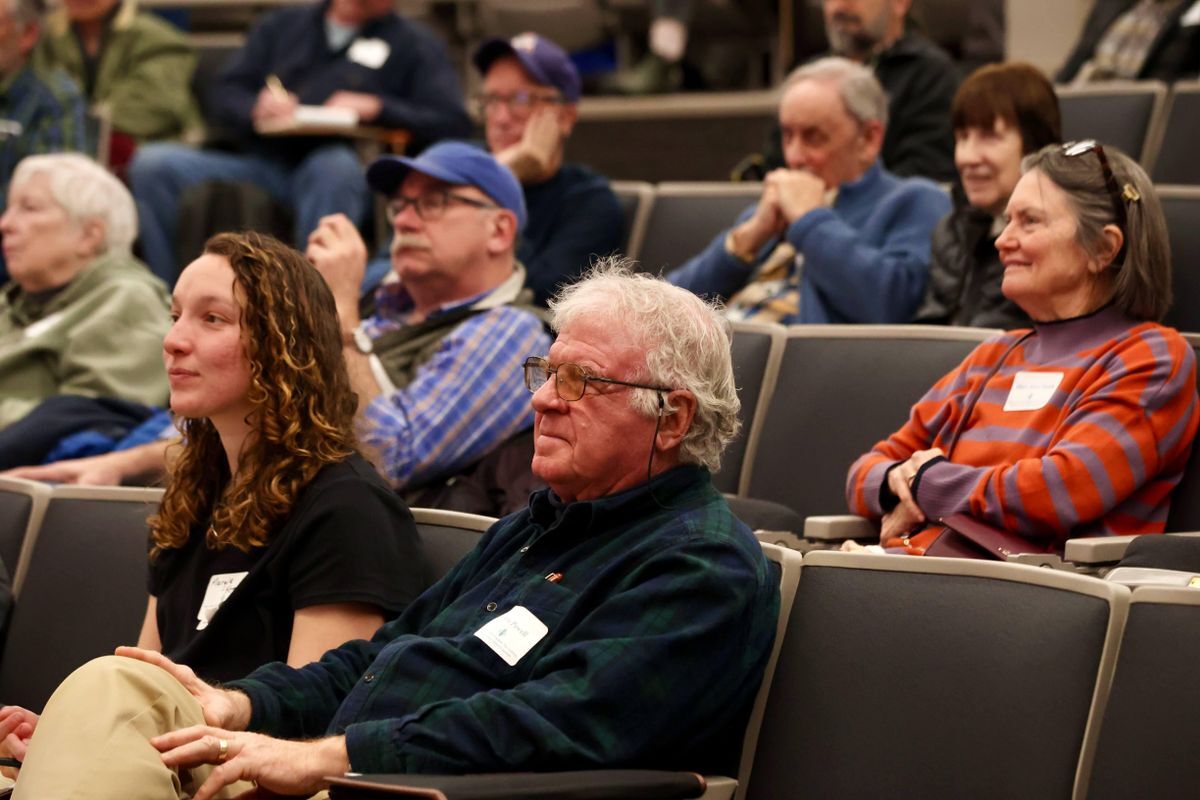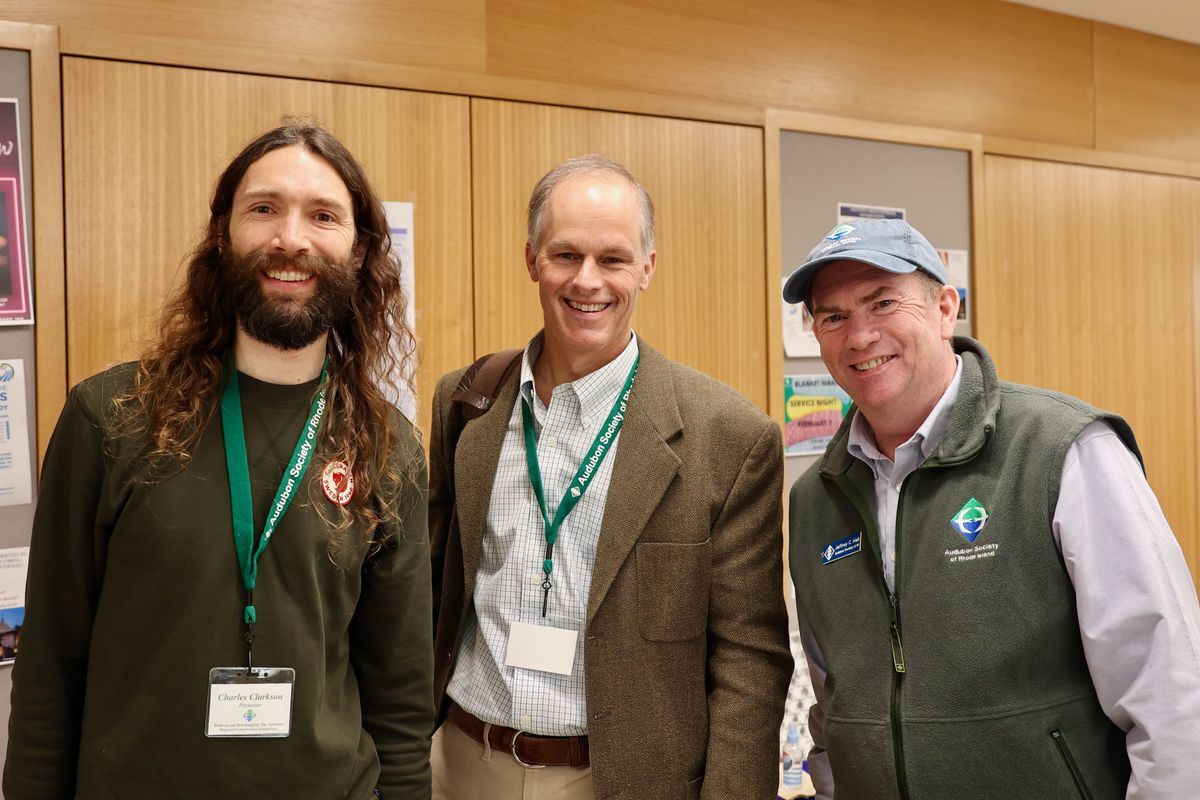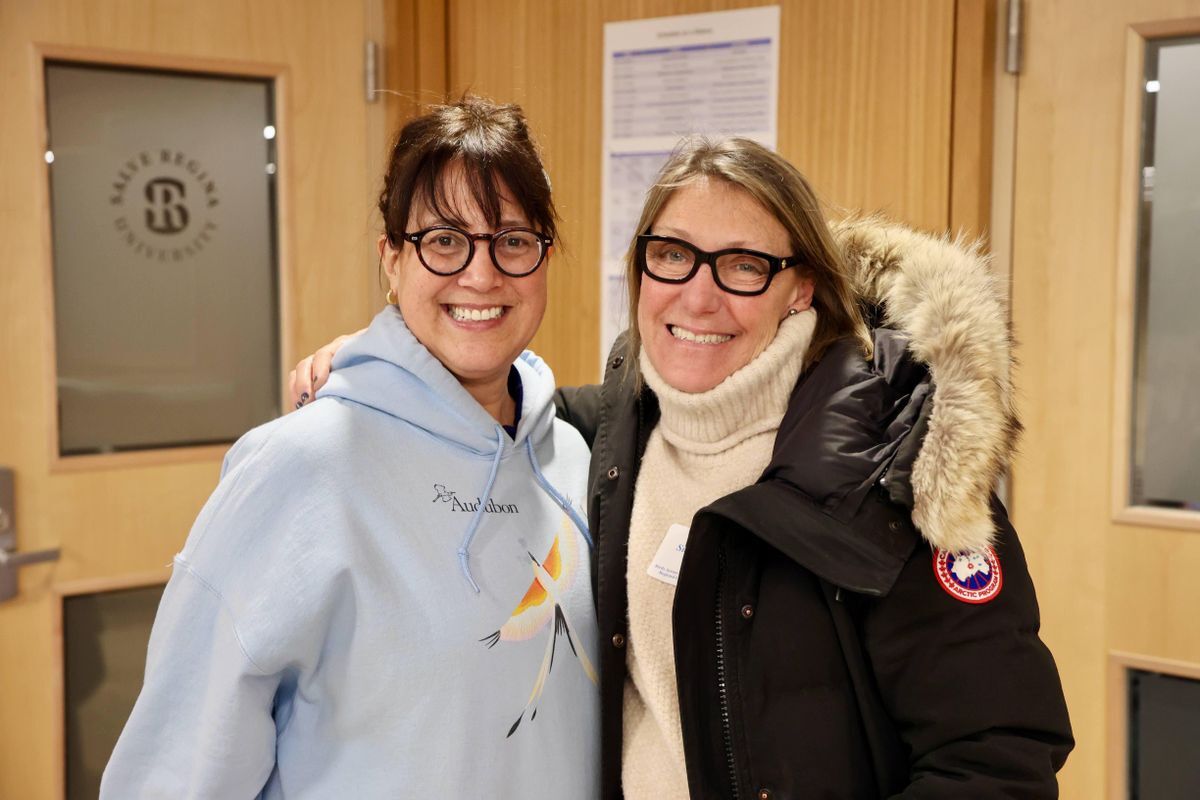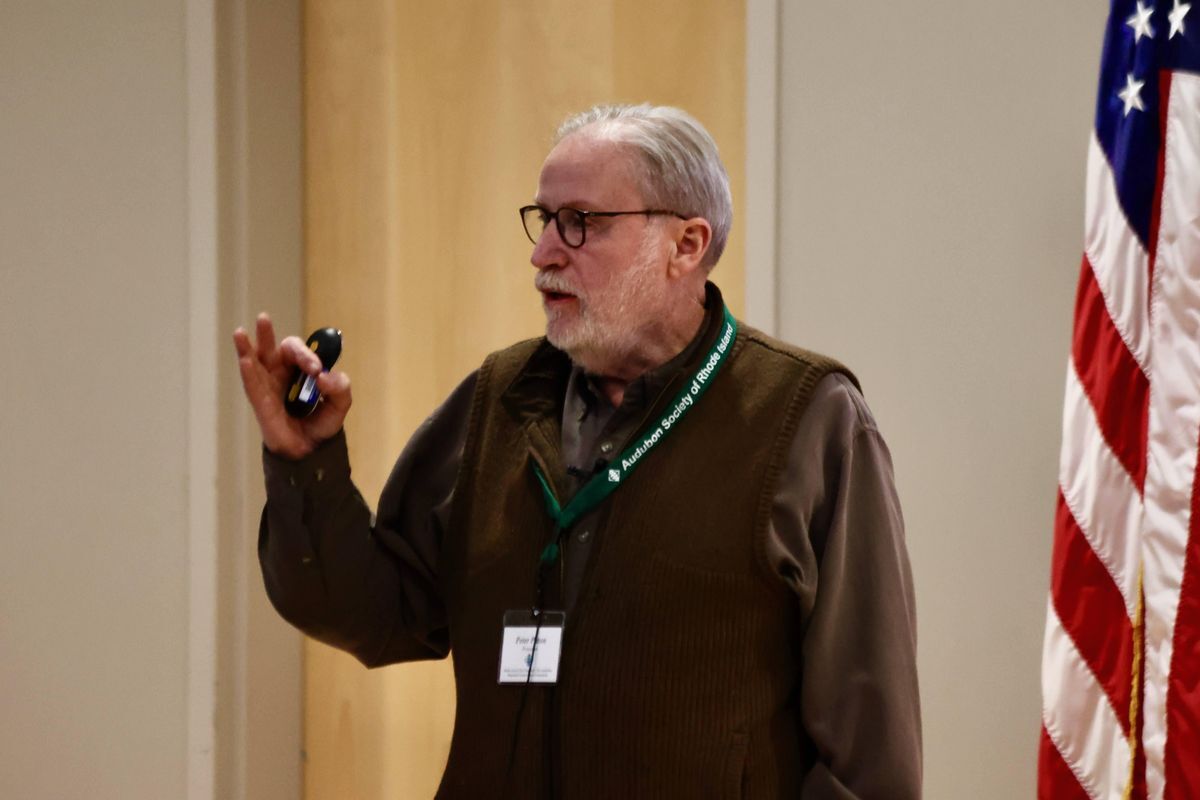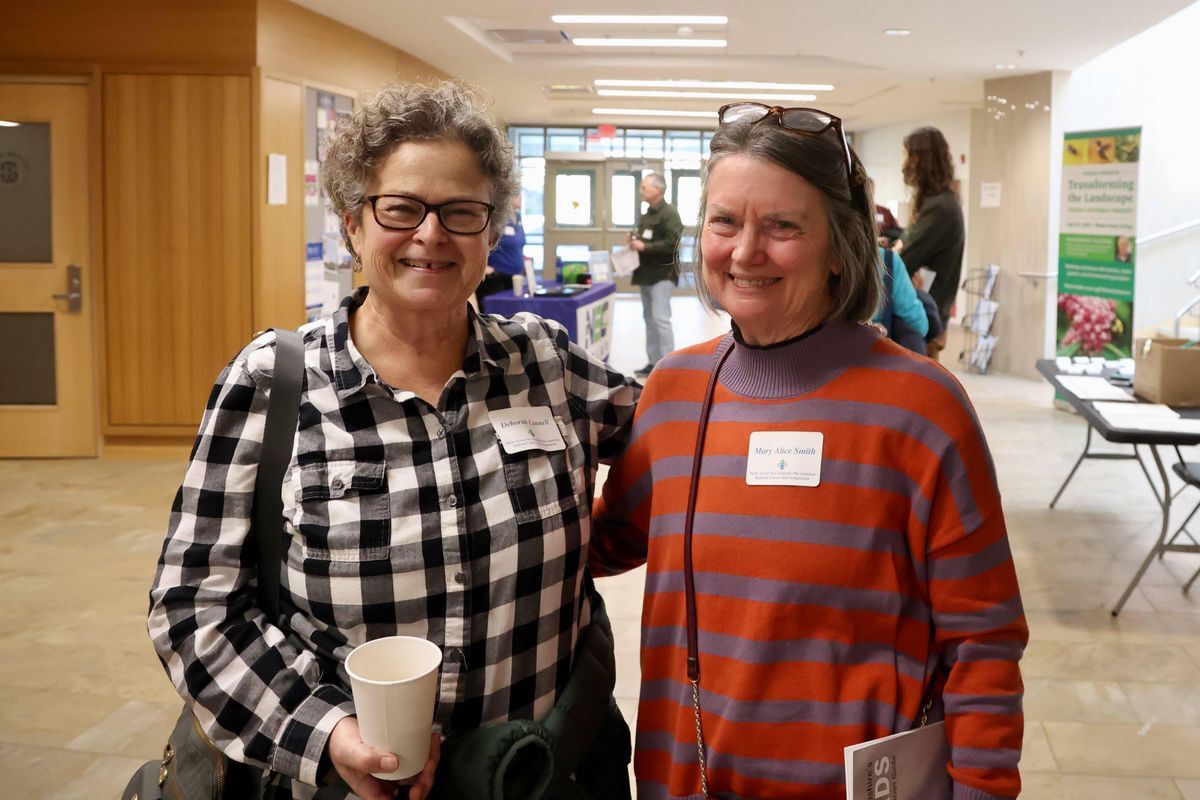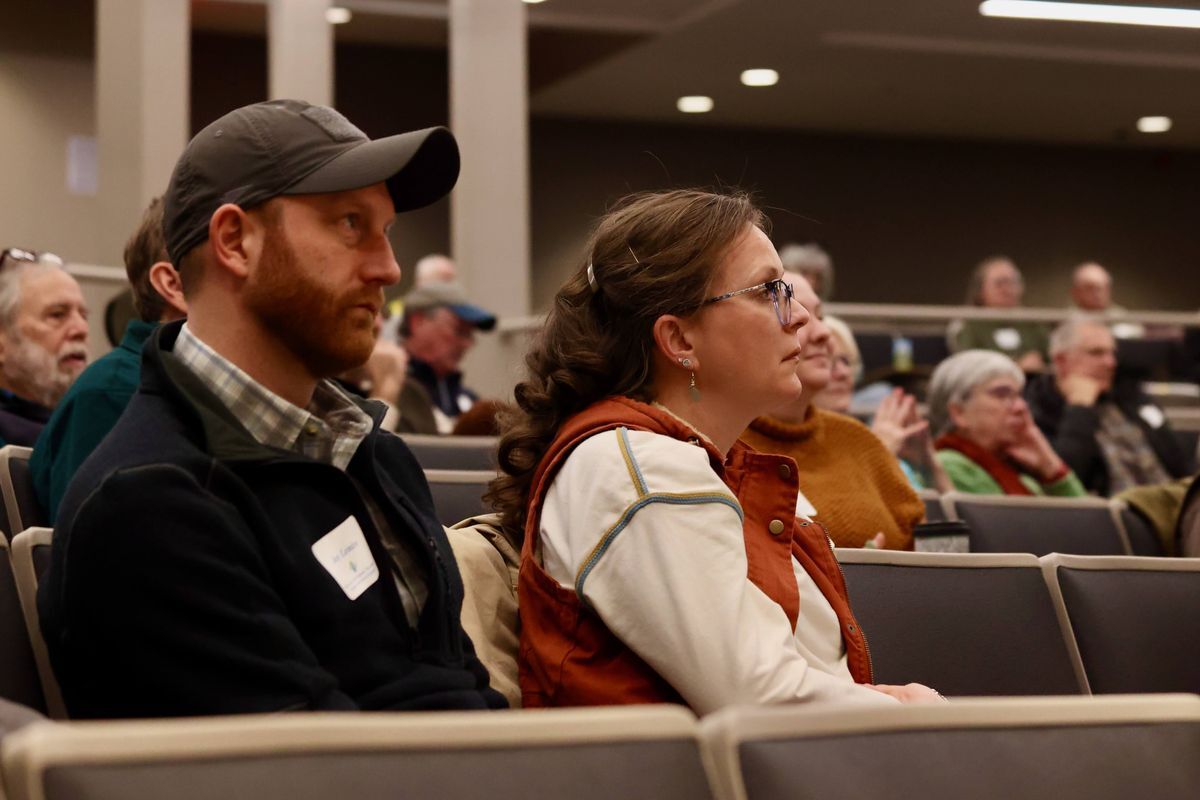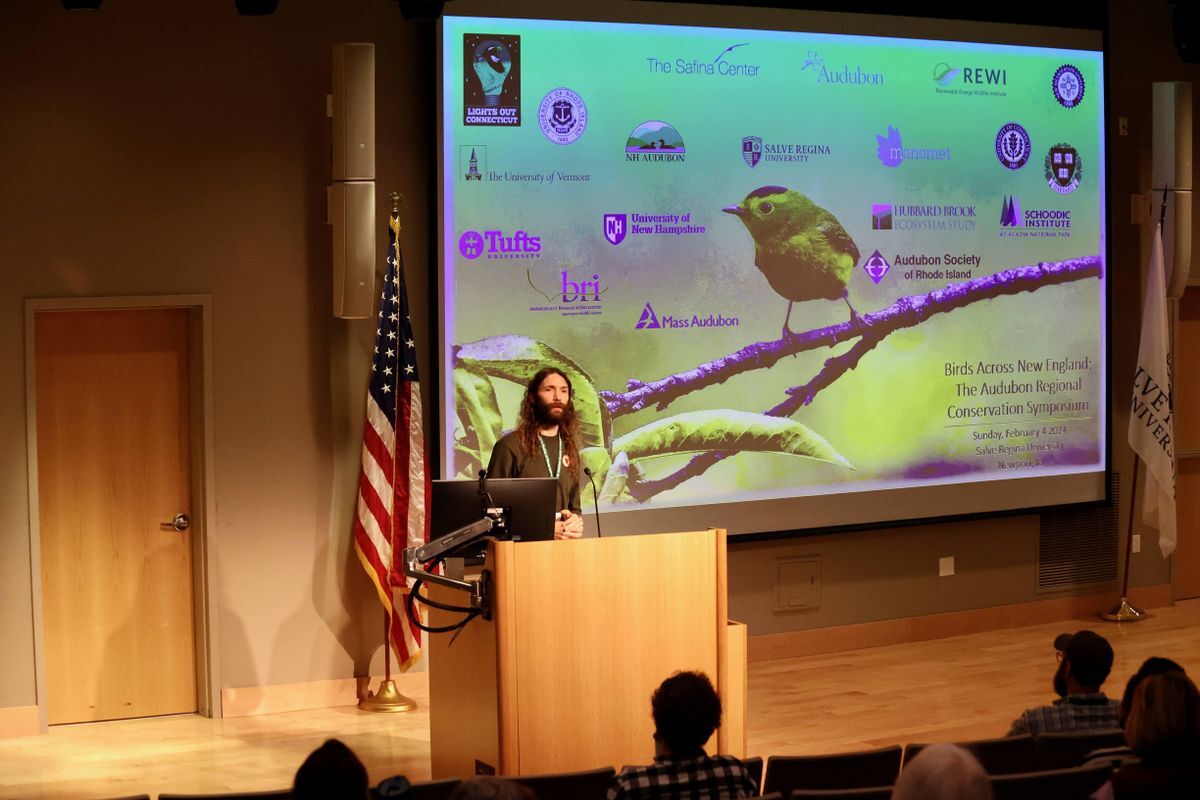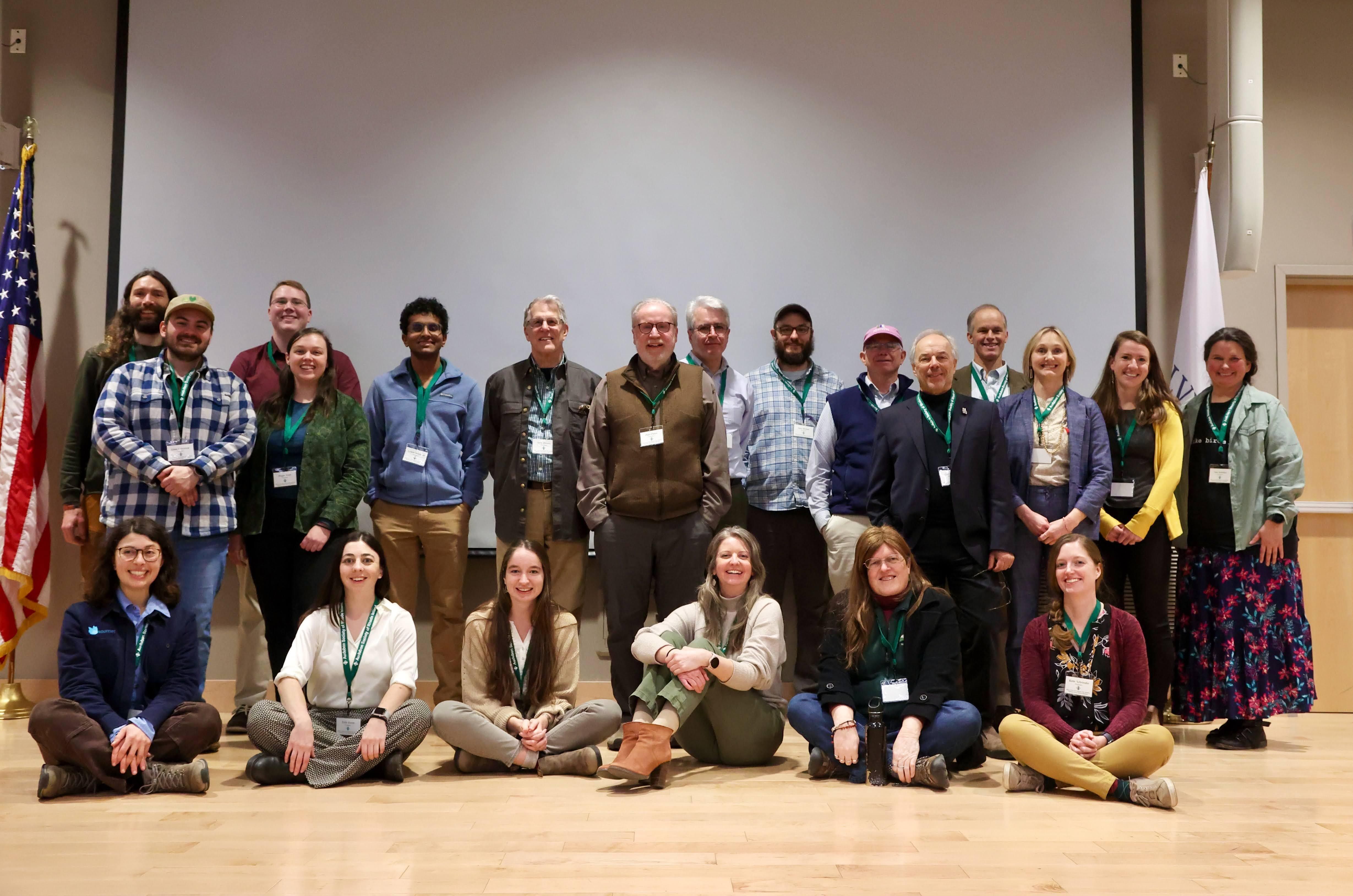
Published February 12, 2024
A Perfect Blend of Science and Emotion, of Data and Passion
By Dr. Charles Clarkson, Director of Avian Research
On Sunday, February 4, the Audubon Society of Rhode Island hosted its second annual “Birds Across New England” regional conservation symposium. The event was held on the beautiful coastal campus of Salve Regina University and the level of academic transference that typifies institutions of higher education was on full display throughout the day.
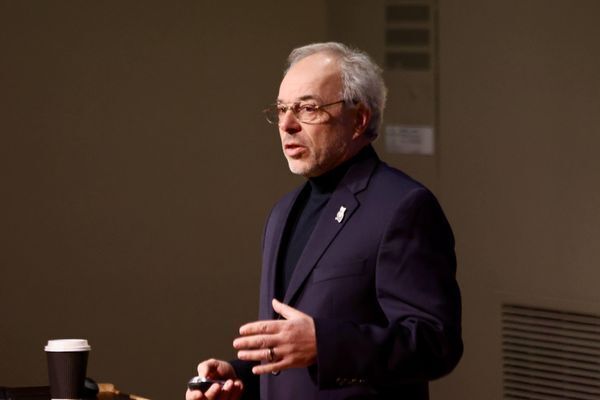
The event began with a keynote address by the award-winning author Carl Safina; it was a plea to become more in tune with nature and recognize the right of these organisms that we share the planet with to exist and thrive.
Twenty-seven researchers from academic, research and non-profit organizations throughout the northeast converged for the one-day event and distilled the amazing amount of work they do to better understand birds and conserve them to an audience of 200 eager-to-learn attendees. The event began with a keynote address by the award-winning author Carl Safina, whose message illuminated the audience of the similarities between birds and mammals in our capacity to feel emotion and act compassionately toward one another. His talk was a plea to become more in tune with nature and recognize the right of these organisms that we share the planet with to exist and thrive. The MacArthur “genius” prize winner discussed his most recently published book and did so in such an effective manner that his book signing later in the morning lasted all of 10 minutes before the books were sold out.
The day then launched into a series of concurrent talks on topics ranging from planting native vegetation for birds, the interaction of birds and wind power, shorebird surveys across the Western hemisphere, the decline in aerial insectivores, and much, much more. Throughout the day, doors would open after each talk and the audience members would emerge, bright-eyed and buzzing with the new information they had absorbed. The feeling of education was palpable. Many talks were optimistic, some were not. Peter Paton, URI professor, presented data collected over 40 years at the Kingston Wildlife Research Station, a property owned by Audubon where bird-banding has occurred each year for decades and is the oldest continuous banding station in the country. The results of the data analysis were sobering. Not only have the total numbers of birds banded at the site dropped precipitously through time, but individual species declines were breathtaking. For example, the Common Yellowthroat (an Audubon “Responsibility Bird”) has declined by 82% during the study period.
Talks on bird-friendly building policies and forest management and the explosive growth of Rhode Island’s Osprey population helped to provide balance to the overall mood of the day. During the lunch break, the dining hall was overwhelmed with the cacophony of conversations: attendees speaking with attendees, attendees speaking with researchers, and researchers speaking with one another…information exchange was everywhere.
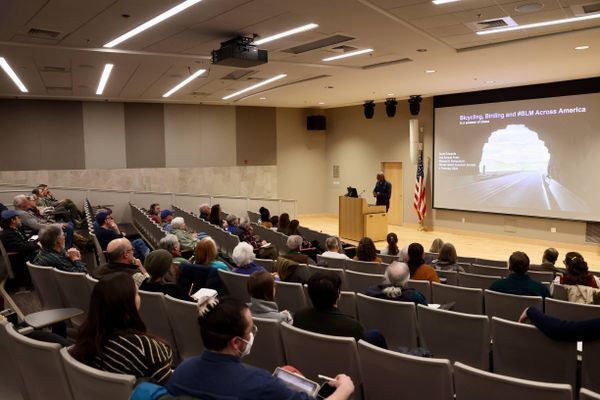
Closing out the day, Dr. Scott Edwards provided a glimpse into an amazing bicycle journey taken across our country in 2020, exposing him to different birds, different landscapes, and different opinions.
At the end of the day, the entire audience, researcher and attendee alike, gathered in the main lecture hall to hear what was likely the most optimistic talk of the day and the perfect ending to the symposium. Dr. Scott Edwards, curator of Ornithology at Harvard University, provided a glimpse into an amazing journey taken across our country. In 2020, Scott embarked on a cross-country bicycle ride which took 76 days to complete, spanned 3,848 miles, and exposed him to different birds, different landscapes, and different opinions. The experience left him, and indeed all of us in the audience, more aware of the things that make us all so different. However, the biggest takeaway was the much greater amount of shared similarity in our lives. His presentation was inspirational, entertaining, and quite honestly, the best way to end a wonderful day.
The symposium was a perfect blend of science and emotion, of data and passion. Exactly as I hoped it would be. Science is so much more than data and manuscripts. I dare say that two individuals trying to make very different cases can be successful through the deployment of one thing: emotion. Someone trying to save whales by showing data of declining populations and maps of shrinking geographic range will nearly always lose to someone trying to hunt whales and deploying emotions connected to livelihood as an argument. I strive to fight for the freedom of nature to exist. This fight requires data as a tool that must be used in conjunction with compassion and emotion. We need to make the case that birds deserve to remain on this planet. Showing graphs and plots will never be powerful enough to save them in their own right.
I learned an incredible amount at the annual symposium. Far more than the material presented. I learned that filling a room with a crowd of scientists and the general public can be electric. The energy created in that space from the positive interactions between those who study the problems and those who want so desperately to help fix them was palpable.
I saw a lot of hope on Sunday, February 4. And, in the words of Desmond Tutu, “Hope is being able to see that there is light despite all of the darkness.”
Images by Richard Staples Jr.

